Ranking MLS rivalries: Which feuds are fiercest?
Major League Soccer has added 11 teams in the past nine seasons. For many newly minted expansion clubs, the novelty factor has yet to truly wear off and with such little history to draw on, it’s difficult for many of them to develop organic rivalries.
That’s not the case for all of the league’s new blood, though. That’s evidenced by LAFC and FC Cincinnati, who came into existence in 2018 and 2019 respectively and are already part of some of the most passionate derbies in Major League Soccer.
For some clubs, their time in MLS dates back little more than a decade, though their histories run much further. Look to the Pacific Northwest and find a rivalry between the Sounders and the Timbers, partially shaped by the feud between Seattle and Portland, that’s as intense as any in American sports.
With Rivalry Week kicking off on Saturday, and with the league’s growing geographic footprint continuing to shift the landscape of which cities and clubs are at odds with which, we asked our league experts: What are the fiercest rivalries in MLS?
– Stream on ESPN+: LaLiga, Bundesliga, more (U.S.)
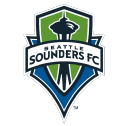

The set-tos every season between the Timbers and the Sounders aren’t so much an MLS rivalry as they are an American soccer one The first encounter between the two sides dates back to May 2, 1975 and the days of the North American Soccer League. (It ended 1-0 to Seattle.) Since then the grudge match has spanned multiple leagues — five, to be exact — and several generations of players and fans.
MLS is now benefiting from that history. The Sounders and Timbers have squared off 117 times in official competition, and it’s not just in games where the rivalry is felt, but the competing tifos that each set of fans trot out whenever these two sides meet. As such, it’s nearly impossible to crystallize the rivalry into one or two moments. Yet some incidents stick in the mind’s eye.
There was the near revolt that ensued within the Portland fan base when the rivalry’s longtime villain, Seattle forward Roger Levesque, was brought in to suit up for the Timbers in a 2007 friendly against Toronto FC. He was met by boos every time he touched the ball, as well as the sign “True Fans Hate Levesque.” There was also Levesque’s “tree chop” goal celebration, when he scored in the first minute of a U.S. Open Cup match between the two sides in 2009.
All of this makes any match involving the two teams a must-watch event, but deciding which team has the upper hand depends on your time horizon.
Overall, the Sounders hold a 56-46-15 edge. In the MLS era, it’s the Timbers that have the slight advantage, going 19-17-7. The Timbers have earned bragging rights in the head-to-head matches during the MLS Cup playoffs, twice getting the better of the Sounders in 2013 and again in 2018. Yet it is Seattle that has the edge in MLS Cups, 2-1, even as Portland was the first to make an MLS Cup breakthrough in 2015.
Expect the ebb and flow — as well as the passion — to continue. — Jeff Carlisle

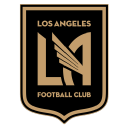
Real rivalries cannot be forced, and when LAFC entered MLS in 2018 — their second time of adding a second team in the Los Angeles market — there was a chance that something meaningful wouldn’t materialize between the Galaxy and LAFC. Enter Zlatan Ibrahimovic.
In the first meeting between the clubs, LAFC led 3-1 in the second half when the Swedish striker made his MLS debut — and what a debut it was. The Galaxy scored immediately, setting the stage for a wonder strike from Ibrahimovic to tie the game followed by another goal to win it, 4-3. The performance drew international interest and, like that, a meaningful rivalry was born.
In the years since, El Trafico has seldom disappointed. In 18 matches across all competitions all time, both teams have scored 40 goals. Only five games have been separated by more than one goal, and after the Galaxy dominated the series early — going unbeaten in the first five matches — LAFC have stormed back, winning the past three. While the Galaxy hold a slight edge — the series tilts in their favor, with 7 wins to LAFC’s 6, plus five draws — it’s LAFC who have won both playoff matchups, including last season’s 3-2 victory in the Western Conference semifinals on their way to their first MLS Cup title.
Yet this is more than just an on-field rivalry. This is a fight for the hearts and minds of the people of LA. For two-plus decades, the Galaxy not only ruled the city, but were the example that other MLS teams aspired to be. The Galaxy paved the way for what was possible. Those lessons — both the successes and failures — made it easier for new teams to get things right from the beginning and from that perspective, no team has benefitted more than LAFC.
In just a few years, LAFC have surpassed the Galaxy in just about every way. Now the pressure’s on the Galaxy to get back up. — Kyle Bonagura
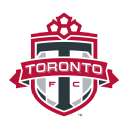

The Montreal/Toronto rivalry has a little — make that a lot — of everything needed to get emotions running high, including some that transcend the soccer field. Toronto and Montreal have historically been economic rivals. Then there are the culture clashes between the French-speaking and English-speaking parts of Canada, as well as the hockey rivalry between the Toronto Maple Leafs and Montreal Canadiens, which is more than a century old. The soccer portion of the competition between the two cities dates back to the NASL days.
Much of that ingrained hostility has now carried over to the MLS teams and if there was one moment that cemented the rivalry, it was the 2016 Eastern Conference finals. The winner would become the first Canadian team to reach the MLS Cup final, and both sides were keen to get those kind of bragging rights at the rival’s expense.
It ended up being an epic. Montreal raced out to a 3-0 aggregate lead after just 53 minutes of the first leg at Stade Saputo. Some thought it was already over (ahem) but TFC clawed two goals back through Jozy Altidore and Michael Bradley, and it breathed life into the Reds heading into the second leg at BMO Field.
On two occasions in the return game, Montreal looked to be in the driver’s seat through Dominic Oduro (making it 4-2 on aggregate) and later through Nacho Piatti (to make it 5-4). But TFC’s Nick Hagglund grabbed the precious equalizer to send the game into extra-time, where the Reds got goals from Benoit Cheyrou and Tosaint Ricketts to conclude a series for the ages.
That isn’t to say that Montreal haven’t enjoyed some special moments in the rivalry. They did take out TFC in the 2015 MLS Cup playoffs thanks to a 3-0 victory at home, with Didier Drogba bagging the third and final goal. Montreal have also had success in the Canadian Championship, winning the 2019 title in Toronto via a penalty shootout thanks to goalkeeper Clement Diop, and afterward allowing their celebrations to carry into the hallway that leads to the press conference room.
However, that was then, and neither team has torn it up in 2023. Toronto have 12 points in 11 games while Montreal have as many in 10 matches. The proof that none of that matters was on display Tuesday night during Montreal’s 2-1 win in Toronto in the Canadian Championship, although to be clear, the rivalry is compelling enough without the fan trouble that marred the match.
The two sides will meet again in Montreal in three days’ time. — Jeff Carlisle
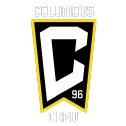
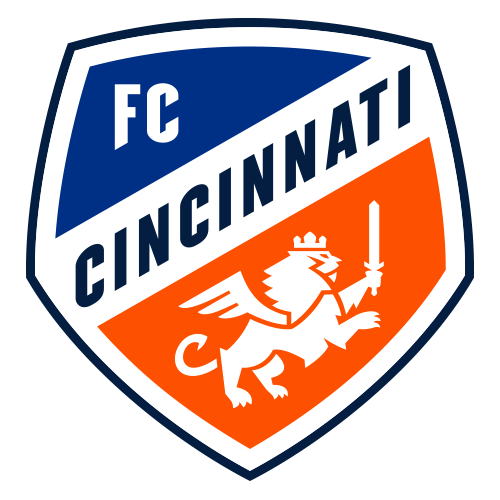
Those familiar with “Hell is Real” know the story behind how this relatively new rivalry caught its name.
Beside Interstate 71, about 30 miles on the road from Columbus to Cincinnati, there’s a sign many Ohioans are familiar with. Yes, it reads: “Hell is Real.” So when the teams met in the U.S. Open Cup in 2017 — before FC Cincinnati’s entrance into MLS two years later — fans sharply avoided landing on something boring like “Ohio derby” and found something that uniquely ties the cities together.
If You Know, You Know.
The game also came at a pivotal point in Crew history. In that same year, current Austin FC owner Anthony Precourt, who then owned the Crew, was threatening to move the club to Texas, which would have obviously prevented a rivalry from existing. The idea of moving an original MLS club with a special place in American soccer history didn’t sit right with most of the league, but the dynamic was made even worse for the people in Columbus knowing that FCC were in the process of entering MLS.
Understandably, that fosters a special kind of resentment. Things worked out for the Crew, of course, and now the rivalry is among the most heated in the league. In 10 MLS matches all time, Columbus owns a decisive 5-1-4 advantage and has outscored its new neighbors, 22-11.
Most of that coincided with FCC’s struggles to adapt to MLS, but now that the club has found its footing, a more competitive rivalry is sure to follow. — Kyle Bonagura
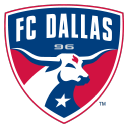
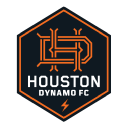
Proximity almost always helps initiate any MLS rivalry. So when the Houston Dynamo emerged in 2006 as a new home for San Jose Earthquakes‘ players and coaching staff through an expansion club, it made sense that animosity would build with fellow Texans, FC Dallas.
Well, that plus a boot to the chest to Carlos Ruiz.
“I think that’s when [the Texas derby] kind of all kicked off, and pardon the pun, with Ricardo Clark,” said Houston general manager Pat Onstad, who was goalkeeping while watching his teammate Clark swing at Ruiz during a 2007 regular season game in October. “If you have the volume on, you can actually hear someone yelling, ‘Rico, no!’ That’s me.”
After both players stumbled into each other during the final minutes of the game that was 3-0 in Houston’s favor, Clark aggressively kicked Ruiz, a former LA Galaxy striker who had moved to Dallas in 2005. The fireworks would later serve as an appetizer for their first and only playoff series that arrived the next month.
“Those are the games where there’s so much, not just physical energy put into it, but emotional energy too,” said former Dallas forward Kenny Cooper. Following Cooper’s efforts that put his team up 2-0 on aggregate through an assist to Ruiz in the second leg of a 2007 quarterfinal series against Houston, Dallas then went down to 10 men after another unexpected hit.
“[Dallas’] Arturo Alvarez got red carded for kneeing Brad Davis in the groin,” laughed Brian Ching, Houston’s forward who would go on to lead Dynamo’s quarterfinal revival in the second leg. With a one-man advantage, Ching carried Houston through his two goals and an assist that pushed his side to a dramatic 4-2 aggregate playoff victory over Dallas. Weeks later, they would go on to clinch a second consecutive MLS Cup title.
“That’s pure elation,” Ching said, “and that’s what you play for: those big moments in those big games against your big rivals.”
In recent years, Dallas have undoubtedly had the upper hand with just four losses since 2013, but with Onstad helping run the Dynamo, Houston have someone who hasn’t forgotten one of the more personally offensive rivalry moments that still lives with him to this day. “One year someone said, ‘Canadian beer sucks,’ and I turned around and I’m screaming at him,” said Vancouver native Onstad about his time as Houston’s goalkeeper during the Texas derby.
“I can take most stuff, but when you start insulting Canadian beer, that’s it.” — Cesar Hernandez




